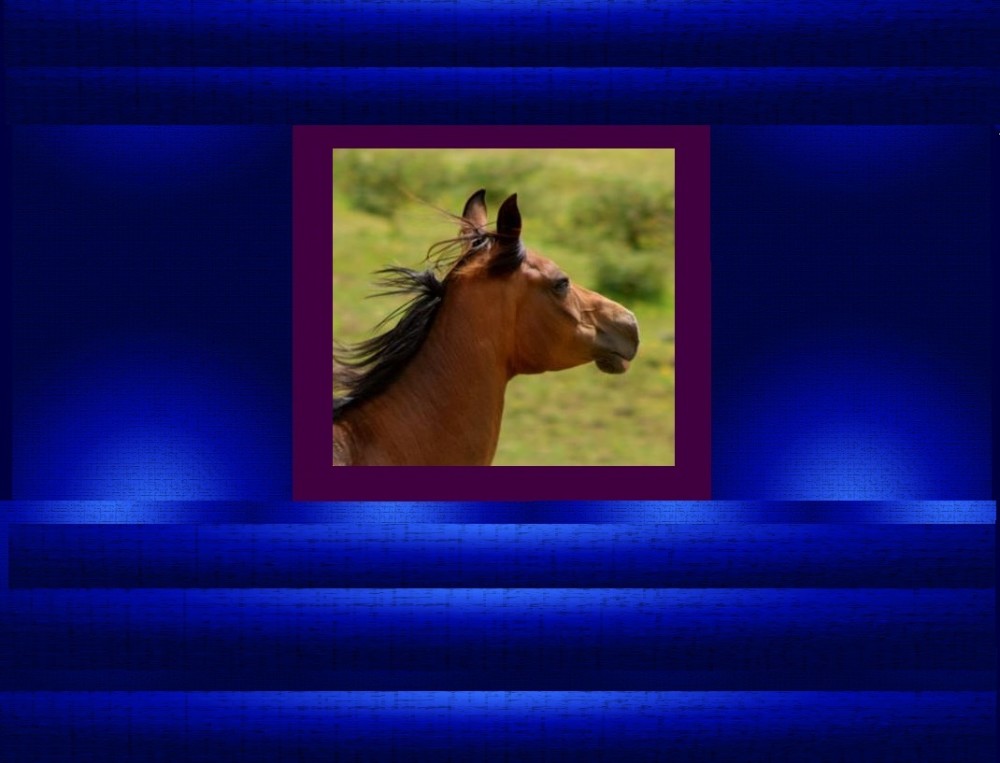An important rule for dealing with a horse that seems unruly or difficult to train:
First, find the horse’s baseline.
What this means is that you have no ability to judge a horse’s behavior until you can see what the horse is like when he is properly cared for.
A horse should never be thought of as difficult or misbehaving until the following conditions have been met:
1) The horse is at a proper weight and has a good diet. Studies have shown that most horses people report as “bad,” horses or horses that regularly misbehave are horses that are overweight. Horses that have an excess of energy will find ways to divert this energy, many of which will be behaviors the rider or handler finds unsuitable. In addition, horses should not be fed feeds that are high in starch and sugar or “non-structural carbohydrates.” Supplements that are grain based rather than roughage based will provide quick energy that horses need to burn off, causing hyperactive or energetic behavior. These feeds can also lead to ulcers and other digestive problems. Many things we feed horses such as oats and corn are the equivialent of feeding sugar to young children and then expecting them to sit still and behave.
(Addendum: since writing this post I’ve overcome my skepticism that oats may actually be a good feed for horses. I’ve discovered they can be fed to horses with no insulin resistance issues and may help with ulcer prevention and weight gain in horses that won’t eat enough long-stemmed forage. They are digested in the hind gut and in my limited experience do not make a “hot” horse more excitable. In fact, if they help with ulcers it may help the horse become more calm. I now believe the issue is excess calories versus excess sugar – a horse that is being exercised and worked needs the carbohydrates to load the muscles with glycogen for fast energy.)
2) The horse has a well-ordered, daily routine. Horses do best emotionally when they know what to expect. They thrive in environments that are structured and have activities happening on a schedule so they can anticipate what will happen throughout the day. They should be fed at nearly the same times each day if meals are provided, and if they are not on a 24/7 pasture they should know when they will be turned out and in every day.
3) The horse has an outlet for his energy. Horses must be provided with exercise every day. They are not well-equipped to be kept in a stall or small pen, and keeping them in such an environment puts a tremendous mental as well as physical stress on them. Everything from their hooves and digestion to lungs and lymphatic system depends on nearly continuous movement. Horses do not need to be ridden or to undergo formal exercise each day, but they must be allowed space to run and move around on a daily basis.
4) The horse has an active social life. Horses are very social animals. They are equipped only to live in an environment where they can interact with and be in a close physical proximity to other horses. Horses that are not allowed to be with others of their own kind will experience mental and emotional stress.
5) The horse has his physical needs met and is as pain-free as possible. If a horse is hungry due to not having adequate roughage to feed on for most of a 24 hr period, or if he is thirsty, he is not at his baseline. Responsible handlers must ensure that a horse’s hooves are well-cared for and that the horse does not have hoof or limb pain. It is vital that any saddle used on the horse fits his conformation and does not rub, pinch or make his back sore. The horse must not have any dental issues and parasites must be under control.
6) If the horse that is considered dangerous or unmanageable is a stud, he should be gelded before any decisions are made that would threaten his life or well-being.
7) The horse must not be kept away from feeding and relaxing for more than a couple of hours at a time. Studies have shown that horses become more stressed the longer we keep them tied up or working for us away from their normal routine. Asking a horse to be apart with a human for five or six hours is quite stressful and should not be done on a regular basis.
8) The horse must not be going through a major change in environment or growth and developmental stage.
Once these conditions have been satisfied, you can know that the horse you are working with is at his baseline and you can now assess his true personality. If the horse has a history of experiences that occurred while he was not at this baseline, then there may be some habits that have developed that are less than ideal. You also must consider that there could be some source of frustration or pain still unknown to you, so it is best to keep an open mind if the horse persists with the bad behaviors.

